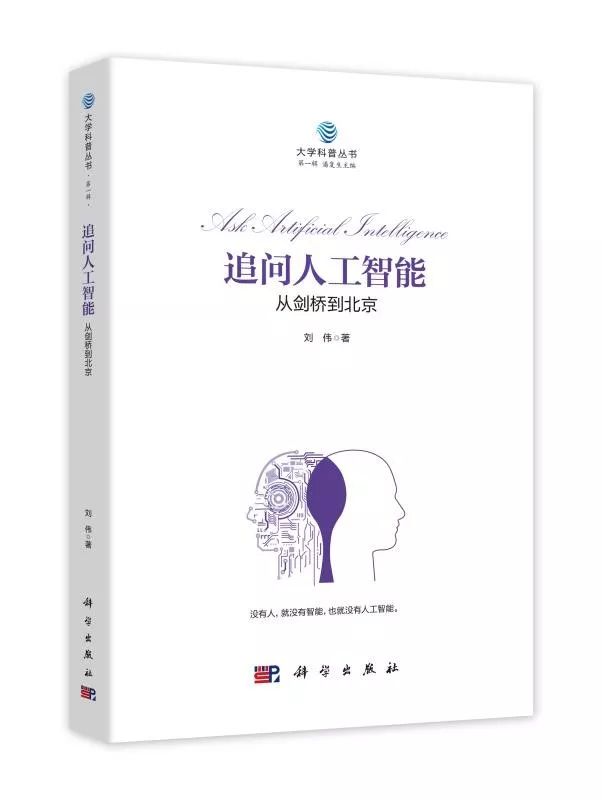Jiang Jun And Li Muhan Apply Ethical Risks And Legal Governance In The Field Of Artificial Intelligence Finance
Jiang Jun And Li Muhan Apply Ethical Risks And Legal Governance In The Field Of Artificial Intelligence Finance
Summary: With the in-depth application of artificial intelligence technology with algorithms as the core in the financial field, the supply of traditional financial services market has undergone profound changes. Artificial intelligence financial applications not only improve the processing speed of financial data, optimize investment and financing decision-making processes, and financial data information sharing, but also rely on its own unique functions such as automatic learning, automatic association, and automatic decision-making to improve or innovate traditional financial transaction forms and financial infrastructure, thereby promoting the improvement of financial services level and capabilities. However, the application of artificial intelligence financial also shows excessive profit pursuit without regard to ethics, which will lead to a loss of the overall interests of the financial market. Even though some people try to use technological neutrality as a fig leaf for ethical problems arising from financial algorithms, in fact, the ultimate goal of technological research and development and use is closely related to the operator
Jiang Jun 1, Li Muhan 2
(1. School of Law, Xiangtan University, Xiangtan; 2. School of Law, Hunan University, Changsha)
Summary: With the in-depth application of artificial intelligence technology with algorithms as the core in the financial field, the supply of traditional financial services market has undergone profound changes. Artificial intelligence financial applications not only improve the processing speed of financial data, optimize investment and financing decision-making processes, and financial data information sharing, but also rely on its own unique functions such as automatic learning, automatic association, and automatic decision-making to improve or innovate traditional financial transaction forms and financial infrastructure, thereby promoting the improvement of financial services level and capabilities. However, the application of artificial intelligence financial also shows excessive profit pursuit without regard to ethics, which will lead to a loss of the overall interests of the financial market. Even though some people try to use technological neutrality as a fig leaf for ethical problems arising from financial algorithms, in fact, the ultimate goal of technological research and development and use is closely related to the operator's intentions. The good and evil of artificial intelligence as a technical means are ultimately subject to people's subjective will. Its conflicts and discord with ethics during its application in the financial field are becoming increasingly prominent, and it is always followed by the torture of financial ethics and cannot be avoided.
The financial ethical risks of artificial intelligence all come from the application value of artificial intelligence technology in the financial field. Without the social value of artificial intelligence at the financial level, corresponding ethical risks will never occur. In addition, the application of artificial intelligence technology in the financial field is the instrumental root cause of the ethical risks of artificial intelligence financial. Artificial intelligence was born to achieve a certain human application goal. The goal is to achieve super intelligence and solve social problems and contradictions that cannot be solved by manpower. In the financial field, the innovative purpose of artificial intelligence is to promote the rationalization and efficiency of financial services through algorithms, etc. But this fundamental goal itself has certain ethical risks, because superintelligence denies the human nature of the earth level and transfers the dominance of part of the earth's nature to the machine. This ethical risk has begun to take a realistic state. The application technology of artificial intelligence lies in its technological logic. The technological logic of artificial intelligence is divided into the following three aspects: big data, algorithms, and automated decision-making. Using legal means to solve the problem of ethical risk governance of artificial intelligence is technically feasible, logically causal and institutionally necessary.
The legal governance path of artificial intelligence ethical risks should be entered and expanded with the following logic: the technical core of artificial intelligence triggers ethical risks in reality, and the governance of this risk needs to return to the corresponding technical logic, and from the legislative and policy levels, ethical value is contained within the legal rules, that is, to form a trinity of "technology-ethics-legal interests", and ultimately realize the scientific system of legal governance of artificial intelligence ethical risks. Based on the three technical cores of artificial intelligence and the three impacts on the roots of human ethical systems, three types of breakthrough approaches to face the ethical problems and dilemmas of artificial intelligence from the legal level can be derived. Among them, it is necessary to convert the appearance of artificial intelligence financial ethics issues into legal language, embed the governance path of artificial intelligence financial ethics issues into legal technology, and form specific new norms in the legal system for the specific governance plans of artificial intelligence financial ethics issues. Specifically, the legal governance of the financial ethics of artificial intelligence needs to start from the following perspectives: effectively control and restrict factors such as the application of artificial intelligence technology, big data and its databases, algorithms and automated decision-making; face corresponding restrictions and constraints at the procedural and entity levels; clarify legislation and strengthen supervision.
Keywords: artificial intelligence; ethical risk; financial technology; algorithm; automatic decision-making
(Original article published in Journal of Jiangxi University of Finance and Economics
2025 Issue 1)
Jiangxi University of Finance and Economics Magazine





